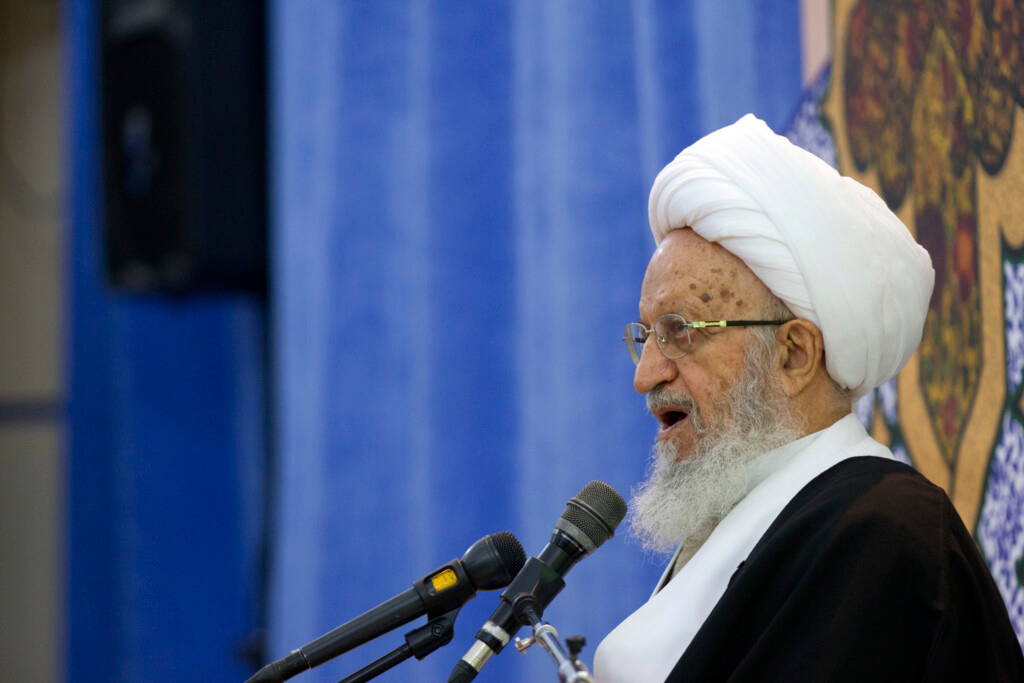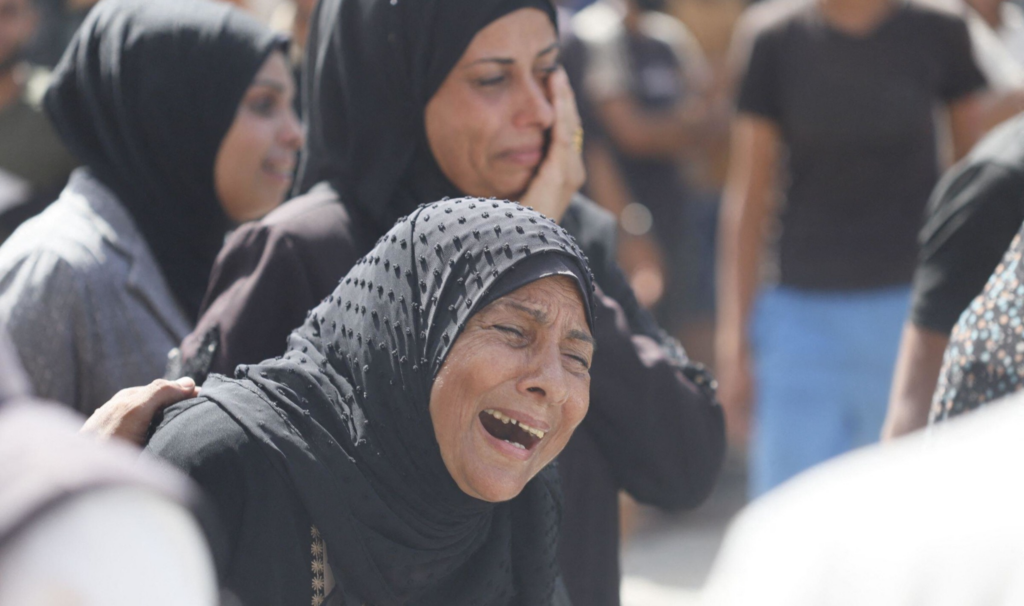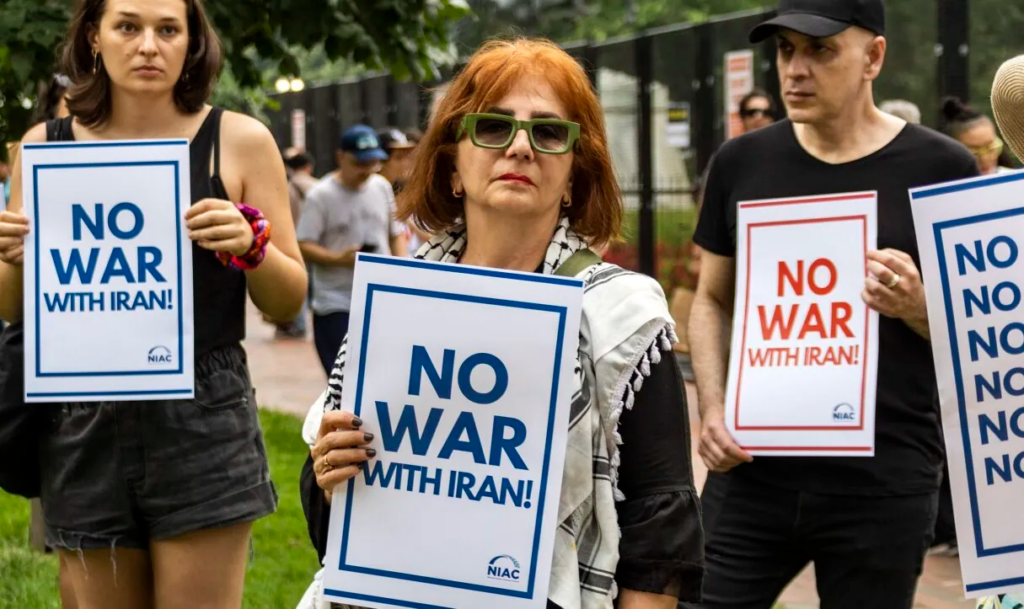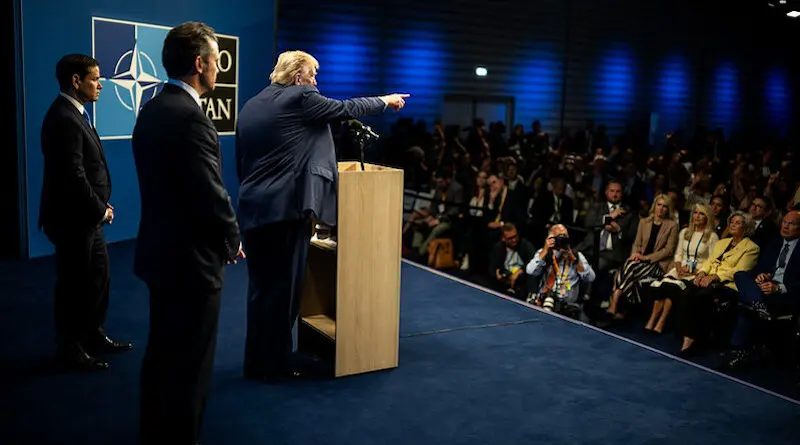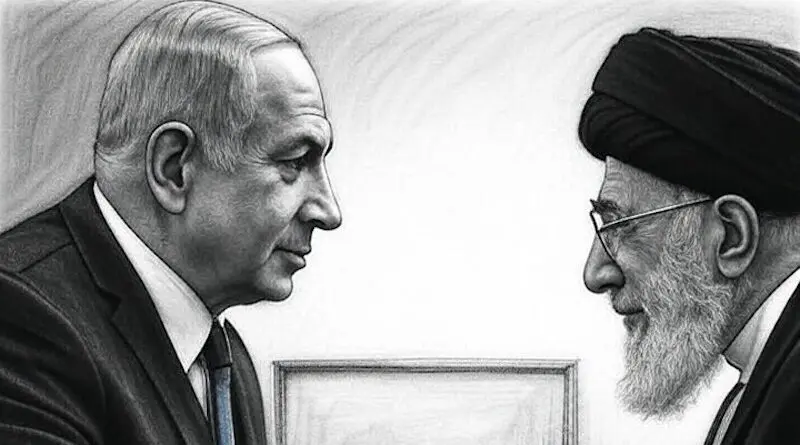
The latest western media coverage has been agog with the Trump administration’s use of its hard power. It follows the bombing of Iran’s nuclear facilities at Fordow, Natanz and Isfahan. This was despite the fact that Iran has never tested a nuclear device and has repeatedly denied pursuing nuclear weapons; and the assessment of U.S. intelligence agencies that Iran had not made a final decision to build a nuclear weapon.
The US intervention has been regarded as illegal, unnecessary and foolish by progressive Americans. However it has drawn strong support by the mainstream conservative media with rhapsodic reporting of “Operation Midnight Hammer”, American military might, and President Trump’s ‘brilliant’ and far reaching leadership.
Not discussed and much less reported is that it was Israel pulling the strings which led to Trump’s decision to order the direct military strikes on Iran.
This is how Israel was able to get Trump to bend his knees to support Israel:
- Intense Israeli Military Campaign: Before the US strikes, Israel had been engaged in over a week of its own military operations against Iran which has been seen as the biggest threat to Israel since the establishment of the Islamic government in Iran after 1979. This sustained Israeli pressure softened the ground and created a sense of urgency and inevitability of some sort of joint Israeli-American ‘retaliatory’ action.
- Intelligence Sharing and Persuasion: Israeli officials and intelligence agencies have been in constant contact with their U.S. counterparts on Middle East developments and would have provided the Trump as well as earlier administrations with detailed assessments of Iran’s nuclear program. These would have emphasised the perceived imminent threat and the limitations of Israeli capabilities to fully neutralize deeply buried sites. Israel has long argued that only the US possessed the specific “bunker-buster” bombs (like the GBU-57 Massive Ordnance Penetrator) and stealth bombers (B-2 Spirit) necessary to destroy the nuclear facilities at Fordow and Natanz.
- Strategic Opportunity Argument: Israel was able to convince the Trump administration that its “Operation Rising Lion” had degraded Iran’s air defenses to a point where a US strike on the nuclear facilities would be less risky and more effective. They framed this as an “unparalleled opportunity” to set back Iran’s nuclear program, possibly permanently; and even to precipitate a regime change with the targeted assassination of Iranian top military and civilian leaders also benefitting American interests.
- Lobbying by American Pro Israel Lawmakers and Leaders: Reports indicate that Trump made the calculation to join the conflict “at the prodding” of many Republican and Democratic party lawmakers and business interests.This suggests direct lobbying and advocacy from both the Israeli government and influential allies within the US political system.
Netanyahu as Puppet Master
One person was key to the successful Israeli effort to induce the U.S. to be engaged in the wars it is currently waging in the Middle East – Israeli President Benjamin Netanyahu. This is how he functioned as the “puppeteer” that pulled the final string which led to what may well turn out to be a pyrrhic victory for the U.S. and Trump.
- Decades-Long Campaign:
Netanyahu had advocated for military action against Iran’s nuclear program for over 30 years, using visits to the U.S.to frame Iran as an existential threat to Israel. By fall 2024, Netanyahu had already ordered preparations for strikes, including compiling assassination lists for Iranian nuclear scientists and systematically destroying air defenses in Syria, Lebanon, and Iraq to clear a path for bombing runs. The 2023 Hamas attack and subsequent Israeli counterstrikes neutralized Iran’s proxy network (Hezbollah, Hamas, Syrian regime), creating a “unique opportunity” for direct confrontation with a weakened Iran.
- Leveraging the U.S.-Israel Alliance:
Netanyahu met Trump at the White House in April 2025 to align strategies by emphasizing Iran’s nuclear threat despite U.S. intelligence assessments that Iran had not yet decided to build a weapon. When Trump pursued negotiations with Iran in May-June 2025, Netanyahu undermined them by launching unilateral Israeli strikes on June 13, 2025, knowing this would force U.S. involvement. U.S. Secretary of State Marco Rubio initially called these strikes “unilateral,” but Trump later joined after Iran retaliated.
- Manipulating Intelligence and Threat Perceptions:
Israeli officials presented U.S. counterparts with interpretations of Iranian nuclear research as “alarming” despite U.S. agencies concluding no evidence existed that Iran’s leadership had ordered weaponization. Netanyahu capitalized on nuanced disagreements between U.S. and Israeli analysts. While both acknowledged Iranian scientists were revisiting weaponization research, Netanyahu framed this as an imminent threat. Trump eventually dismissed his own intelligence director, Tulsi Gabbard and adopted Netanyahu’s rhetoric, claiming Iran was “very close” to a bomb.
Aftermath for Trump and Netanyahu
As puppet master, Netanyahu was able to play on the vanities of Trump and pander to his ego through a combination of flattery and appeal to Trump’s desire for legacy-building. He has continued this by praising the U.S. strikes as “historic” and claimed that they would “change history”.
More important personally for Netanyahu is that the American action has diverted attention from his long standing corruption trial and Gaza war failures whilst boosting his Likud party in the coming polls and possibly ensuring his continuation in power. Should that happen, it can be seen to positively impact Netanyahu’s history.
Trump, on the other hand, has now put the U.S. in a position of greater risk and vulnerability from potential Iranian retaliation against U.S. forces in the Middle East. He has also provided the larger Muslim world, including countries not aligned with Iran with a solidarity that has cut across sectarian and political divides. Perhaps the most consequential impact is the religious and ideological framing of the U.S. strike. It will further burnish Iran’s narrative that it is a victim of Western aggression, empowering hardliners and ensuring long-term anti-American mobilization from both state and non-state actors, not only in Iran and the Middle East.



